The State of Delaware has created an initiative unique among US States--the ideal approach for detecting and addressing developmental-behavioral, social-emotion/mental health problems in young children. With legislative advocacy by Lieutenant Governor Matt Denn, supported by the Delaware Academy of Medicine, the Delaware Chapter of the American Academy of Pediatrics, the Delaware Chapter of Family Practice, the Nemours Foundation, Delaware’s Autism Society, Speech-Hearing Association, the public library system, parents and professionals, Delaware’s Division of Public Health now offers free developmental-behavioral screening via PEDS Online® for children residing in Delaware.
Not only does Delaware ensure that providers and parents have access to free, high quality screening, but the State also recognized that care coordination is essential. Care-coordination ensures that families actually receive recommended services. So on this page, we explain how the Delaware initiative works and provide information about the screening and referral process.
“Brilliant move by Delaware. Leading the way.”
-Professor Mitch Blair Harrow, Public Health Trust, London, England
“Very impressive. Well done!”
-Professor Frank Oberklaid, The Royal Children's Hospital, Melbourne, Australia
“Terrific!”
-Barry Zuckerman, Confucius Award from UNESCO for Reach Out and Read
PEDS Online® allows healthcare professionals, non-medical providers and parents to accurately detect developmental-behavioral/social-emotional and mental health problems in children birth to 8 years old.
Use of PEDS Online:

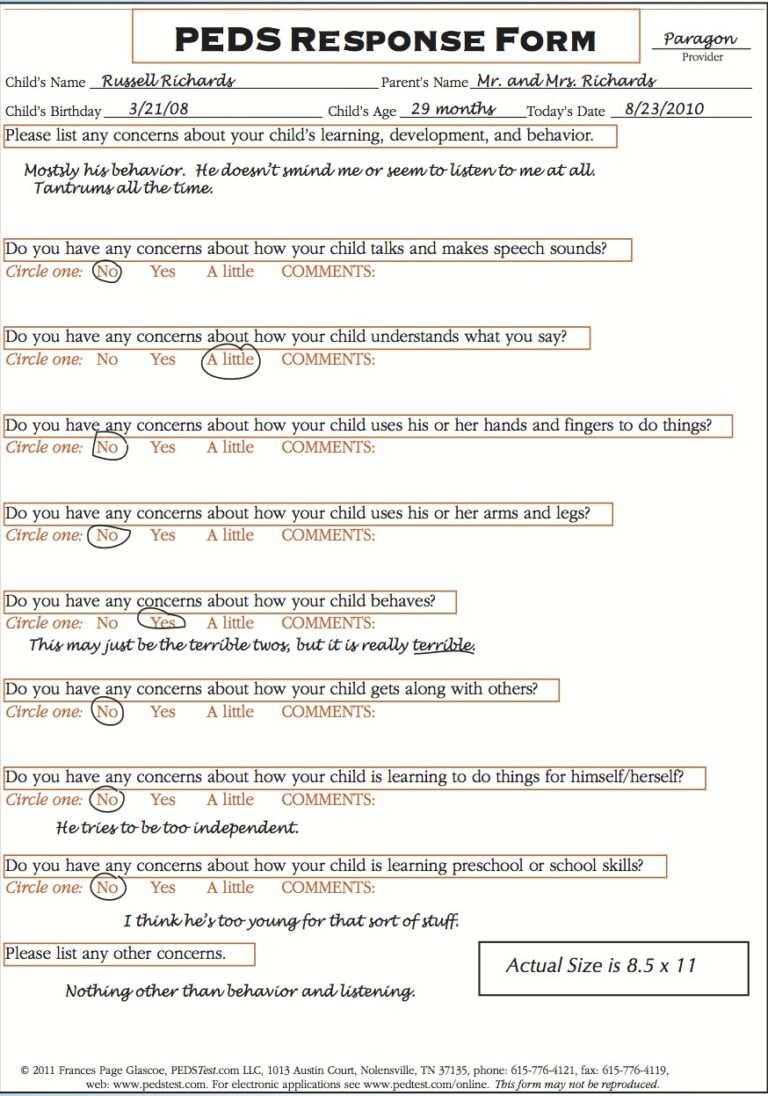
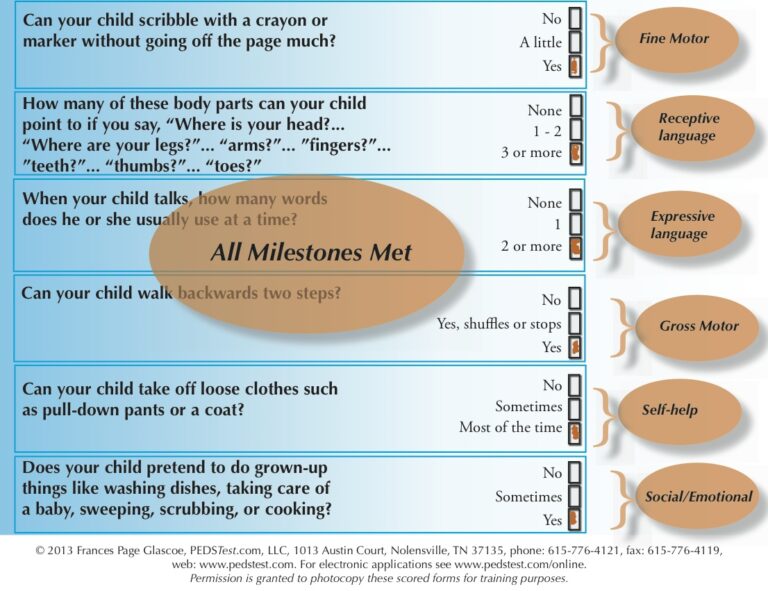
PEDS-R® is available in 45+ languages and each translation has been tested and proven to work. So if you use an interpretation service (e.g., phone-based translators), be sure they have the official translations. You can indicate which translations you need on your PEDS Online® license agreement and we will send you digital files. Within PEDS Online®, PEDS Tools® are presented in English and Spanish but Spanish-language comments will need to be back-translated into English before using the site. (PEDS Tools® are scored via sophisticated text-based scoring analyzer that searches for specific comments, in English, and then categorizes these by domains).
PEDS Online® presents PEDS:Developmental Milestones® in English or Spanish. There is no need to back-translate. The PEDS:DM® is also available in Arabic, French-Canadian, Korean, Japanese, Punjabi, Taiwanese, Tamil and Thai with others ongoing. You can request these files by email if needed.
The Modified Checklist of Autism in Toddlers-Revised is presented in English or Spanish. There are numerous translations on the M-CHAT website.
If you want families to complete screens before a visit, follow instructions below:
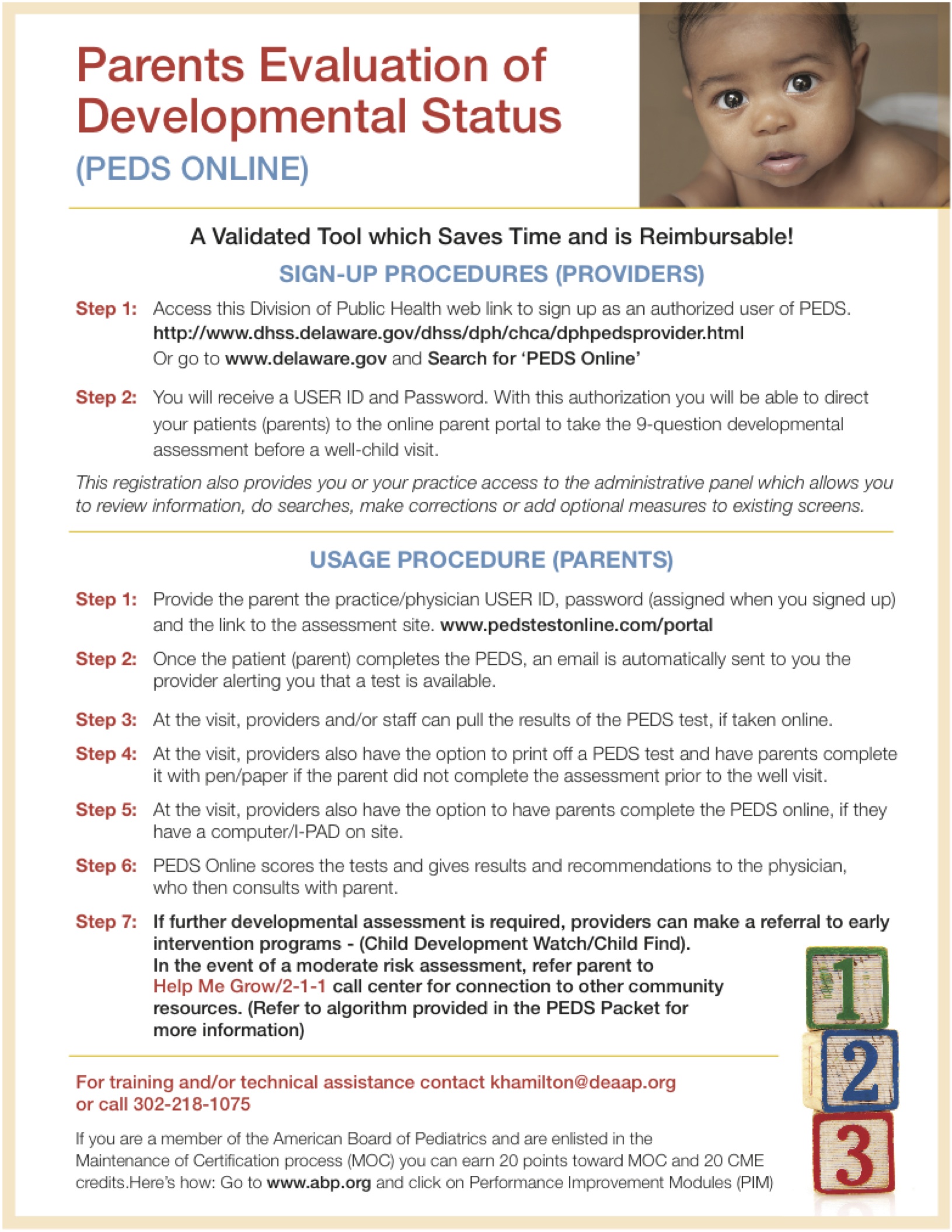
Delaware has designed a helpful flow chart to assist clinicians with referrals based on PEDS Online® results. The chart provides guidance on where to refer families based on the child’s age and PEDS Online® results. For example, some children need referrals to Child Development Watch or Child Find, while others are best helped by referrals to the Help Me Grow/2-1-1 Call Center.
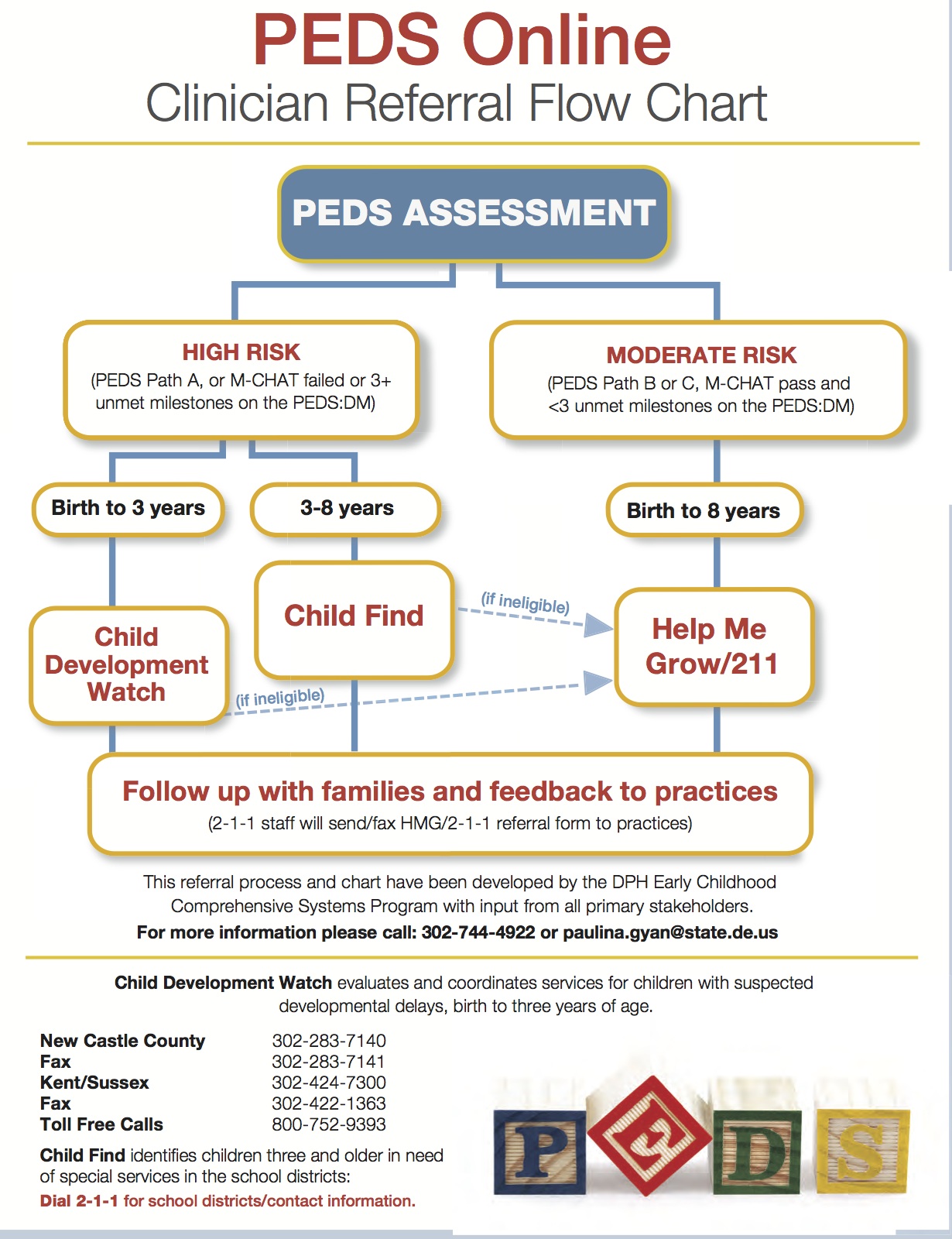
You can download the Delaware referral algorithm by clicking here. It is wise to keep a copy on clinic walls, for example, in waiting, exam rooms or nursing stations, so that parents and providers can see whom to call when families need assistance
You can ask parents to go to the PEDS Online® parent portal before the visit to complete screens before the encounter. Parents will not see results. Instead an email alert will be sent to your clinic so that you can retrieve the results from your clinic’s unique database.
There are several ways to encourage parents to complete screens on their own:
Delaware's has created a brochure for parents that you can also download by clicking here. Be sure to insert your PEDS Online® username and password, and then make photocopies to share with parents. You can also use the brochure as a reminder for the next appointment.

Delaware Academy of Medicine created helpful videos about how to use PEDS Online®.
Watch this video to learn about administering PEDS Online®.
Watch this video to learn about implementation strategies.
This video explains how to retrieve and interpret PEDS Online® results.
Watch this video for guidance on how and where to refer.
Here is a video on how to bill and code based on PEDS Online® screens.
Watch this helpful slideshow on why healthcare providers should add their own concerns before scoring PEDS.
For case examples and videos about PEDS Online® tools: Parents’ Evaluation of Developmental Status-Revised® (PEDS-R®), PEDS: Developmental Milestones® (PEDS:DM®) and the Modified Checklist of Autism in Toddlers (M-CHAT-R), please click here
After completing the PEDS® Screen, please download and modify the PEDS Online® Referral Letter. A link to the Referral Letter is shown once you complete PEDS Online® Screens.
Complete the Community Resource and Referral Form.
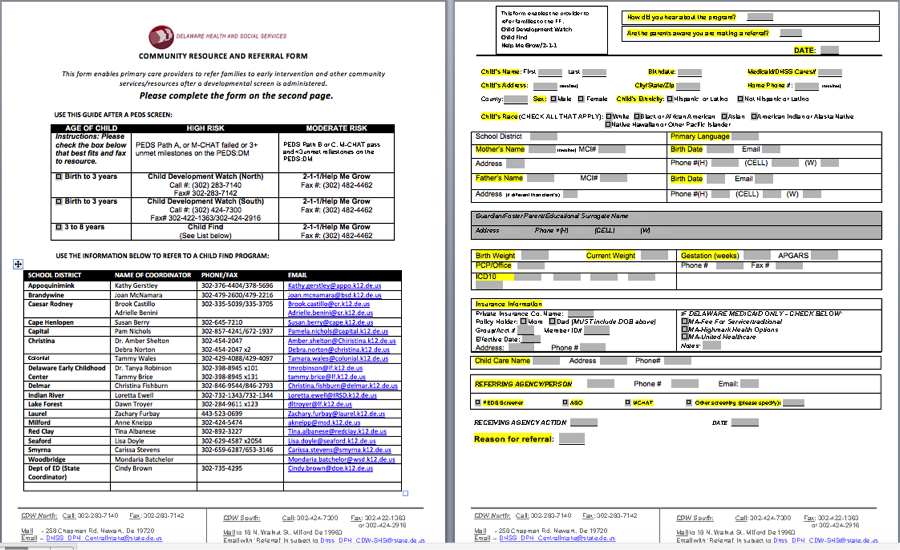
The PEDS Online® Referral Letter and the Community Resource and Referral Form will guide you into the types of referral needed.
Both documents ask parents for consent to share information from referral sources back to your office.
Probably the most challenging aspect of adopting quality approaches to screening/surveillance is figuring out how to make it work in our practices. There are many considerations but there are also many effective models.
Clinics implement PEDS Online® in different ways -depending on staffing patterns, patient mix, and equipment. If you click here, you can read about the 5 different approaches to implementation.
You will also find a downloadable workflow planning guide/template to aid you in figuring out a viable step-by-step plan that works for your clinic. There is also an example of a clinic work-flow chart plus information about billing/coding for optimal reimbursement.
The Delaware Chapter of the American Academy of Pediatrics recruits and trains primary care practices to register for and implement the validated screening tool-PEDS Online in their practices during primary care well-child visits. The DEAAP Training and Technical Associate is available to provide PEDS Online® training and technical assistance and to advise on office workflow, billing and coding, and the referral process.
For more information, contact the DEAAP Training and Technical Associate by email at: mailto:DEAAP.Trainer@medsocdel.org or by calling 302-224-5197.
For further questions about using PEDS Online®, please contact us.
Clinicians new to the use of accurate screening tools, often wonder why so many more patients are detected. Click here to open a document that describes prevalence, why accurate screens detect more children than do informal milestones checklists or ad-hoc questions to parents, to learn about American Academy of Pediatrics’ policy on early detection, research on the screens used within PEDS Online®, including sensitivity, specificity and false-positives, and about findings from Delaware’s initiative